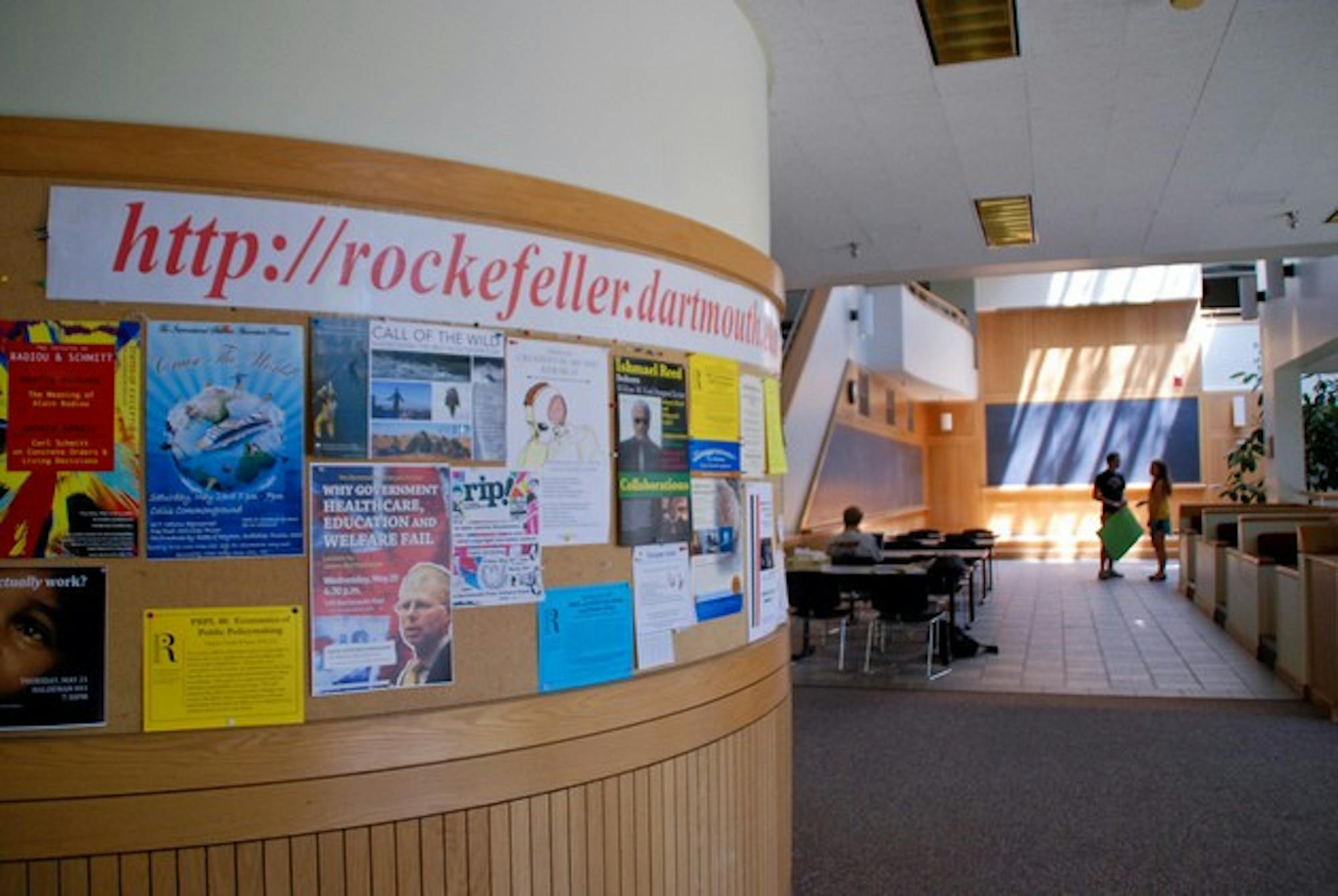Five months after College officials announced they would cut the institutional budget by $72 million over the next two years, academic departments and College organizations are working to limit the effects of the new budgetary constraints by reducing administrative operating costs and cutting back on new programming and guest speakers. Teaching, course offerings and student programs appear to have remained largely unaffected, although Katherine Soule, the director of budget and fiscal affairs in the Dean of the Faculty office, refused to disclose departmental budgets.
"The dean says that we want to keep this confidential," Soule said. "It's completely confidential, confidential between departments. We can't give this information to anyone."
While biology faculty have worked to maintain "the core mission of the department," teaching hours have been reduced and one staff member was moved to another department in light of "pretty substantial" budget reductions, department chair Tom Jack said in an interview.
"The worst part was the staff issues," Jack said.
The English department has not had to reduce the size of its staff or the number of courses it offers, and has not been as affected as many other academic departments, department chair Gretchen Gerzina said. The department has more flexibility than some other departments because several faculty members will be on leave next year, which will allow the department to reduce its total staff hours without resorting to layoffs, Gerzina explained.
Faculty and course offerings in the government department will also not be affected by budget cuts, according to department chair William Wohlforth, although spending in all areas has been reduced, he said.
"Nothing has been immune, there have been cuts across the board," Wohlforth said.
An administrative assistant is retiring from the department, and may not be replaced at full time, Wohlforth said. The loss of this position will reduce faculty support and have "a huge effect on this department," he said.
"We have yet to hear a detailed report as to what the situation will be next year," Wohlforth said.
The department will implement several measures to save funding, which includes relying on a less expensive company to cater department events, he said.
"As far as students are concerned, I don't think they'd notice," Wohlforth said about the changes.
The department was fiscally conservative during periods when the College's endowment was performing well, Wohlforth said, which should allow it to weather the economic downturn.
The economics department will offer four additional courses next year, department chair Steven Venti said, although faculty and staff will see a decrease in salaries and an overall reduction in operating costs.
"We're not unscathed we're enhanced," Venti said. "I'm really surprised. In the beginning, I was expecting much worse."
Economics department administrators have reduced funding for the department's lecture series and have cut some social activities, Venti said.
"Our budget includes one computer support service, coffee and seminars the budget isn't much here," he said.
All four departments have funding lines from endowments of varying sizes, which gives them more flexibility in determining how cuts will be made, the department chairs said. The biology department's research is also funded principally by grants, and is not related to the College's budgetary situation, Jack said.
The John Sloan Dickey Center for International Understanding, the Rockefeller Center and the Tucker Foundation all also have independent endowments that significantly buffer the organizations from the effects of the College budget cuts.
Although the Dickey Center has not been directly affected by College-wide budget cuts, associate director Christianne Wohlforth said its endowment has taken a major hit. The center has received a $3-million grant from the National Science Foundation and a $250,000 grant from the National Institutes of Health within the past year, but its income has decreased by almost 20 percent, Wohlforth said.
The center has focused on maintaining internship funding and on the introduction of the international studies minor, which was implemented Winter term, Wohlforth said. The number of students receiving funding for internships increased from last year, Wohlforth said.
The staff of the Dickey Center has reduced administrative expenditures and the number of visiting fellows and conferences to save funding, Wohlforth said.
"We don't bring anything online that we can't sustain," she said.
The Dean of the Faculty office has reduced funding allocated for the Rockefeller Center, Rockefeller director Andrew Samwick said. The College's endowment will fund two full-time positions and one part-time position at the Rockefeller Center next year, down from three full-time and one part-time position this year, Samwick said. The Rockefeller Center will fund the third full-time position using its own endowment, he said.
Conservative fiscal decisions in previous years will allow the Rockefeller Center to maintain its programs, Samwick said. In the 2008-2009 fiscal year, for example, Rockefeller administrators placed some of its budget into a reserve, which the center can now tap.
"All of the programs that touch students are at least level-funded," Samwick said.
The Rockefeller Center draws on its endowment for roughly two-thirds of its operating funds, Samwick said. Historically, one quarter of Rockefeller funding has been allocated by the Dean of the Faculty, although the percentage for next year is still unknown, he said. The remainder of the center's funding comes from grants and annual donations.
Because of decreased returns on the Tucker Foundation's endowment, administrators have cut funding for new programs and discretionary expenses like food, Tucker Foundation Dean Richard Crocker said in an e-mail to The Dartmouth. To lower staff costs, administrators have combined several positions through attrition rather than layoffs, Crocker said. The Tucker Foundation is funded primarily through an endowment, but also receives support from the College.




